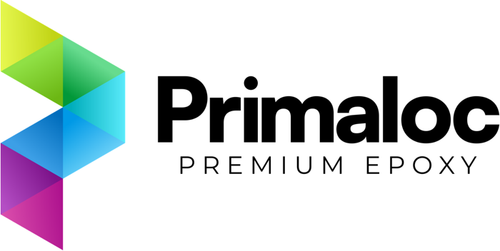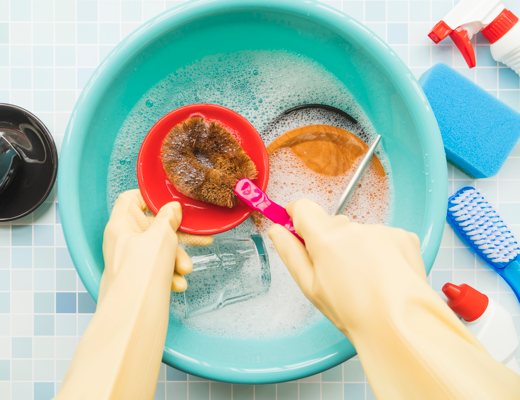One aspect of epoxy resin that many people forget to consider is how best to take care of their creations after they've finished curing.
Though epoxy resin—whether used for fixtures, furniture, or art and crafts—is surprisingly low-maintenance, it's still a good idea to learn how best to handle the basics of cleaning and sanitizing it.
In this article, we'll be focusing specifically epoxy items related to food and drinks, such as resin cups, epoxy tumblers, and various dishes with partial or full epoxy coatings. We'll first explain what you should avoid doing, to best preserve your drinking glasses and similar items. Then we'll give two surefire methods for cleaning your resin cups that are straighforward and almost effortless.
How to Clean Resin Cups and More
Because epoxy resin is food safe, many creators use it to craft custom tumblers, cups, and different types of dishes, which they can personalize and customize to suit their aesthetic preferences.
When it comes to cleaning these items, there's not much different from your usual fare. However, there are a few restrictions to cleaning methods for epoxy resin that may not be immediately apparent.
We have two tips on what you shouldn't do to clean these items.
What Not to Do #1: Never Use the Dishwasher to Clean/Sanitize Your Resin Dishes.
Always hand-wash your resin items—never use the dishwasher.
Here's why:
Plastics, including thermosetting plastics such as epoxy, may warp or melt when exposed to the intense heat of a dishwasher cycle unless marked dishwasher safe. This is especially true when placed on the bottom rack near the heating element.
In fact, this is a common issue with many types of items, and it's why there is a diverse range of utensils, tools, dishes, etc., which all indicate "hand-wash only". Items labled as such should not be cleaned in a dishwasher due to the potential for damage both to the items themselves and possibly to the dishwasher.

Dishwashers are too strong for many types of items, including epoxy.
The high temperatures and aggressive detergents used in dishwashers can be detrimental to specific materials. For example, wooden utensils and cutting boards can warp, crack, or lose their finish under the intense heat and moisture.
Delicate glassware, especially hand-blown or crystal pieces, can become etched or cloudy over time due to the harsh cleaning agents. Similarly, cast iron pans and non-stick cookware can have their seasoning or coatings damaged, respectively, diminishing their non-stick properties and longevity.
Furthermore, the dishwasher environment can be harmful to items with adhesive components, such as the glue used in some pots and pans with attached handles, as well as items with painted or decorated finishes which can chip or fade.
Certain metals, like copper, brass, bronze, and pewter, can tarnish and lose their luster. Moreover, the intense water pressure and high temperatures can cause items to collide, risking chipping or breaking.
Dishwashers also pose the risk of leaking harmful chemicals from some items, like certain plastics, into the wash cycle, potentially contaminating other items.
For these reasons, it's essential to consider the material and construction of kitchenware and other items before deciding to clean them in a dishwasher.
What Not to Do #2: Avoid Powerful Solvents and Cleaning Chemicals When Cleaning Resin Items.
When cleaning epoxy items, avoid using strong solvents.
Here's why:
Epoxy resin is resistant to many different types of damage. Impact damage, scratching, cutting, moisture, etc. are all far less effective on epoxy than they are on many other types of materials. But every material has limitations, and one of those for epoxy is chemical solvents.
Solvents used for cleaning are chemical substances that dissolve, dilute, or disperse other materials, typically dirt, oils, or organic compounds, without necessarily chemically altering them or the surfaces they're cleaning. These solvents can range from water, the most common and gentle solvent, to stronger, organic solvents like acetone, alcohol, or petroleum-based products.
Each solvent has distinct properties that make it suitable for specific cleaning tasks. For instance, water is an excellent solvent for salts and sugars, but ineffective against oil or grease, which are better dissolved by organic solvents.
Alcohols like isopropyl alcohol are used for their ability to evaporate quickly and are effective against a range of substances including bacteria, making them useful for sanitizing surfaces.Acetone, found in nail polish remover, is a powerful solvent for many plastics and synthetic fibers.
However, the strength and chemical properties of these solvents also mean they can damage certain materials, like plastics (including epoxy) or delicate fabrics, and can be hazardous to health if not used in well-ventilated areas or with appropriate protective gear. Thus, selecting the right solvent for a cleaning task is crucial for both effectiveness and safety.

Two Cleaning Techniques for Resin Cups and Dishes
Next up, we'll provide two distinct methods for cleaning your resin cups, dishes, and more.
Resin Cleaning Technique #1: Use Warm Water and Mild Dish Soap.
Our first method is the easiest and probably most venerated way to clean just about anything. With just warm water and some mild dish soap, most resin items can be cleaned easily.
Because the surface of epoxy resin is inherently smooth at a microscopic level once cured, residues and particles have trouble clinging strongly to the exterior. Due to this, it doesn't take much effort to dislodge any residue from epoxy resin surfaces. For tumblers, which typically have a stainless steel interior, a little more effort may be required, but this method is still more than adequate.
Tips for Cleaning Resin with Warm Water and Soap:
- When cleaning epoxy surfaces this way, we recommend against using anything super abrasive, such as steel wool, which can cause scratching. Instead, stick with a lighter abrasive, such as a sponge or common scrub brush, as these will be more than enough to handle your epoxy surfaces and free them of grime and residue.
- Consider mixing up a cleaning solution by mixing warm water and soap in a small container. You can then dip items into this and scrub them clean before rinsing them off with flowing water from a faucet.
In most cases, this method is all you'll need. Sometimes, though, something stronger is necessary. That's when our next technique comes into play.
Resin Cleaning Technique #2: Soak Your Resin Dishes Overnight—or at Least for Several Hours
When dealing with stubborn residues or stains on a dish, allowing them to soak in a mixture of warm water and soap can help make cleaning them a breeze. Because epoxy can't be cleaned safely in a dishwasher, this is an excellent option for tougher cases.
Here's why:
Soaking dishes—any, not just resin—in soapy water before washing them is an effective method to ease the cleaning process, primarily due to the chemical properties of soap and the principle of time.
The soap in the water contains surfactants, which have the unique ability to break down and dissolve fats and oils that often adhere to dishes. These surfactants have a hydrophobic (water-repelling) end that attaches to oils and a hydrophilic (water-attracting) end that helps to rinse them away.
When dishes are soaked, these surfactants have time to work their way under, around, and through food particles, loosening and breaking them down. This action reduces the need for vigorous scrubbing, as the prolonged contact time allows the soap to soften and dissolve stubborn, dried-on food and grease.
Additionally, soaking helps to hydrate and swell any dried food particles, making them less adhesive and easier to remove. Therefore, by soaking dishes, you are essentially allowing the chemical action of the soap and the physics of hydration to do much of the hard work, resulting in an easier, more efficient cleaning process.

Primaloc Epoxy: Premium Epoxy for Premium Results
When it comes to epoxy resin, Primaloc Epoxy gets the job done. Our epoxy resin is premium-grade, with high performance in every category, including maintaining a smooth, easy-to-clean surface.
Epoxy resin can be beautiful, strong, and long-lasting—which is why you shouldn't compromise on quality. With Primaloc Epoxy Resin, you get the ultimate finish in durability and visual appeal.
Protect your surfaces by giving them a rock-solid epoxy finish. Choose strong. Choose reliable. Choose Primaloc.

